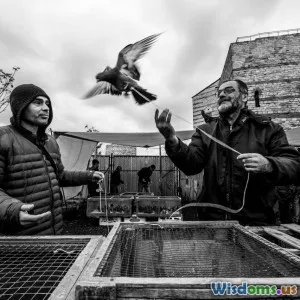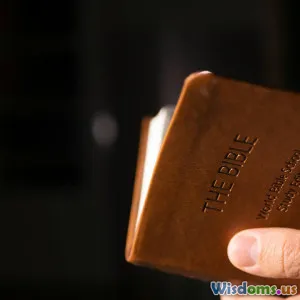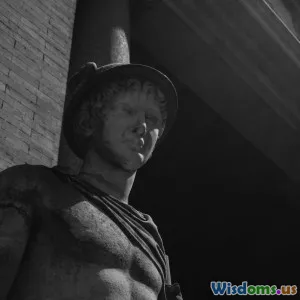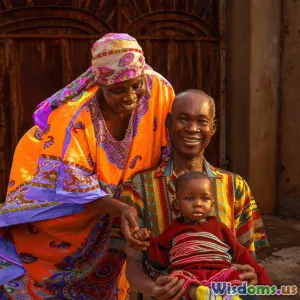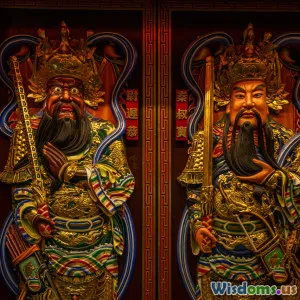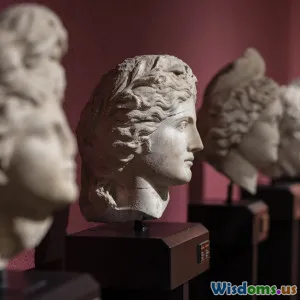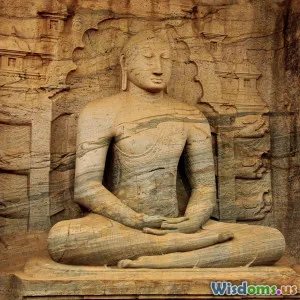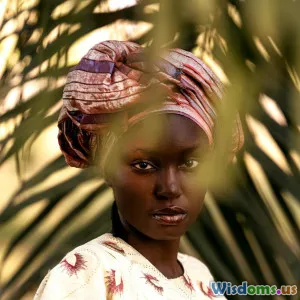
The Surprising Role of Women in African Folklore
8 min read Explore the vital and often overlooked role of women in African folklore, revealing heroines, goddesses, and cultural icons shaping myths. (0 Reviews)
The Surprising Role of Women in African Folklore
African folklore, a vast and diverse tapestry of myths, legends, and oral traditions, often showcases the power and influence of women in ways that surprise many. While popular culture frequently emphasizes male heroes and gods, the roles of women—as goddesses, heroines, spirit guides, and cultural shapers—are essential components of these stories. This article explores the strong, complex, and inspiring roles women occupy in African mythology, debunking misconceptions and celebrating their enduring legacy.
Introduction: Beyond the Stereotypes
When people think of African folklore, images of brave warriors or mighty gods often spring to mind. Yet, women in these stories are far from passive or peripheral figures. Instead, they fulfill diverse roles encompassing wisdom, power, creativity, and survival, reflecting complex societal values and cosmologies.
From the nurturing goddess figures who govern fertility and nature to legendary women whose courage altered the destinies of communities, these tales challenge stereotypes and emphasize female agency in traditional African societies.
Female Deities: Divine Architects of Creation and Life
Oshun — The Yoruba Goddess of Love and Fertility
Among the Yoruba people of Nigeria, Oshun is one of the most revered orishas (deities). She symbolizes love, beauty, fertility, and wealth. Far from being a simple nurturing goddess, Oshun wields deep spiritual power; people believe she controls fresh water, healing, and prosperity.
Oshun’s mythology highlights her ability to contest authority when needed—she famously influenced kings and heroes with her wisdom and strength. Important ceremonies dedicated to Oshun, such as the Osun-Osogbo festival, continue to thrive in Nigeria, drawing thousands who honor her legacy.
Mami Wata — The Enigmatic Water Spirit
Popular across West and Central Africa, Mami Wata is a water spirit often depicted as a mermaid or a woman carrying a comb and mirror. She embodies mystique, seduction, and duality—the power to both bless and curse.
Mami Wata stories address themes of temptation, transformation, and spiritual healing, reflecting complex attitudes towards femininity and the unknown. Her influence even extends into the African diaspora, appearing in Caribbean and African-American folklore.
Legendary Heroines: Stories of Courage, Wisdom, and Resistance
Queen Nzinga — A Real-Life Woman Mythologized
While not purely folklore, Queen Nzinga of Ndongo and Matamba (modern-day Angola) blends history and myth. Renowned for her resistance against Portuguese colonization in the 17th century, Queen Nzinga became a symbol of female leadership and resilience.
Legends about her clever diplomacy, battlefield prowess, and unyielding spirit have entered folklore, inspiring generations and highlighting how female figures can embody national identity and cultural pride.
Anansi and the Spider Stories: The Trickster’s Female Counterparts
Anansi tales, prevalent among the Ashanti of Ghana, primarily feature the spider trickster Anansi. However, his female relatives—such as his wife—play crucial roles in many variants, sometimes outwitting him or teaching lessons through their cunning.
These stories imply a nuanced perspective on gender roles, showing women as not merely associated with domestic spheres but as active, intelligent participants in storytelling and societal order.
Women as Spiritual Guides and Oracles
In many African traditions, women serve as diviners, healers, and spiritual intermediaries, often holding the community’s wisdom and secrets.
The Role of Priestesses and Diviners
In cultures such as the Yoruba, women operate as babalorishas' (priestesses) and healers using Ifá divination. Their sacred knowledge is vital for predicting the future, interpreting dreams, and mediating between the material and spiritual worlds.
Similarly, among the Dogon people of Mali, women play integral roles in ritual performances associated with death, ancestor worship, and cosmic knowledge, further emphasizing their spiritual significance.
Cultural Impact and Legacy
These archetypes and stories do more than entertain—they have a lasting effect on contemporary cultural identities. For example, modern African literature, music, and art frequently revisit these female figures, reinterpreting their roles to address current issues like gender equality and empowerment.
Inspiring Modern Movements
Activists and scholars often draw on folklore to reclaim African women’s histories and challenge patriarchal narratives. The reverence for female deities and legendary women offers not only a source of pride but also powerful metaphors for contemporary struggles.
Artists like South African poet Koleka Putuma and Nigerian author Chimamanda Ngozi Adichie reference and reimagine these myths, drawing lessons of strength and resilience for new generations.
Conclusion: Reframing African Folklore Through the Lens of Women’s Influence
Far from marginal figures, women in African folklore encompass goddesses, heroines, spiritual leaders, and culture bearers central to the continent’s mythic imagination. These stories celebrate female agency, wisdom, and power, reflecting societal values that honor complexity in gender roles.
Recognizing and valuing these narratives expands our understanding of African history and culture, challenging monolithic portrayals and inspiring deeper respect for the richness of African folklore. As society continues to explore themes of equality and identity, these ancient tales provide enduring lessons and role models to uplift and motivate.
References
- Finnegan, Ruth. Oral Literature in Africa. Oxford University Press, 2012.
- Drewal, Henry John. Yoruba Ritual: Performers, Play, Agency. Bloomington: Indiana University Press, 1992.
- Okpewho, Isidore. African Oral Literature: Backgrounds, Character, and Continuity. Indiana University Press, 1992.
- Gomez, Michael A. African Dominion: A New History of Empire in Early and Medieval West Africa. Princeton University Press, 2018.
The continued study and celebration of women in African folklore not only enriches mythology but also uplifts cultural appreciation and gender discourse globally.
Rate the Post
User Reviews
Popular Posts












